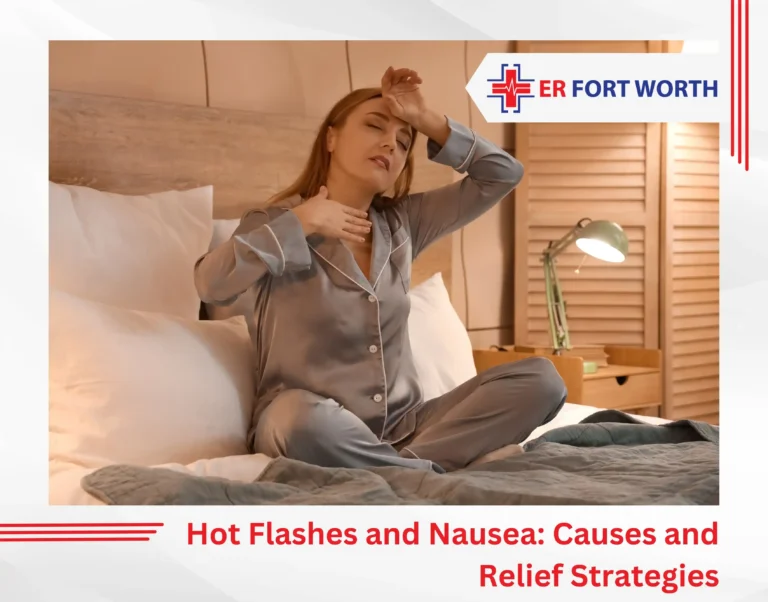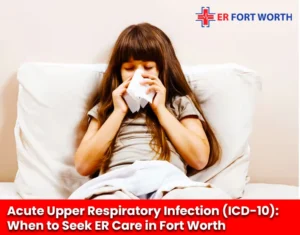Hot flashes and nausea often appear before bigger problems surface. These symptoms happen when your hormones and nervous system lose balance. The same systems that control your heart rate, blood pressure, and digestion.
Repeated episodes can signal thyroid imbalance, adrenal fatigue, low estrogen or testosterone, or poor cardiovascular regulation. If left unchecked, these can lead to fainting, chronic fatigue, heart palpitations, and anxiety attacks.
Understanding hot flashes and nausea relief strategies and causes helps you protect your health before things get serious.
What are Hot Flashes?
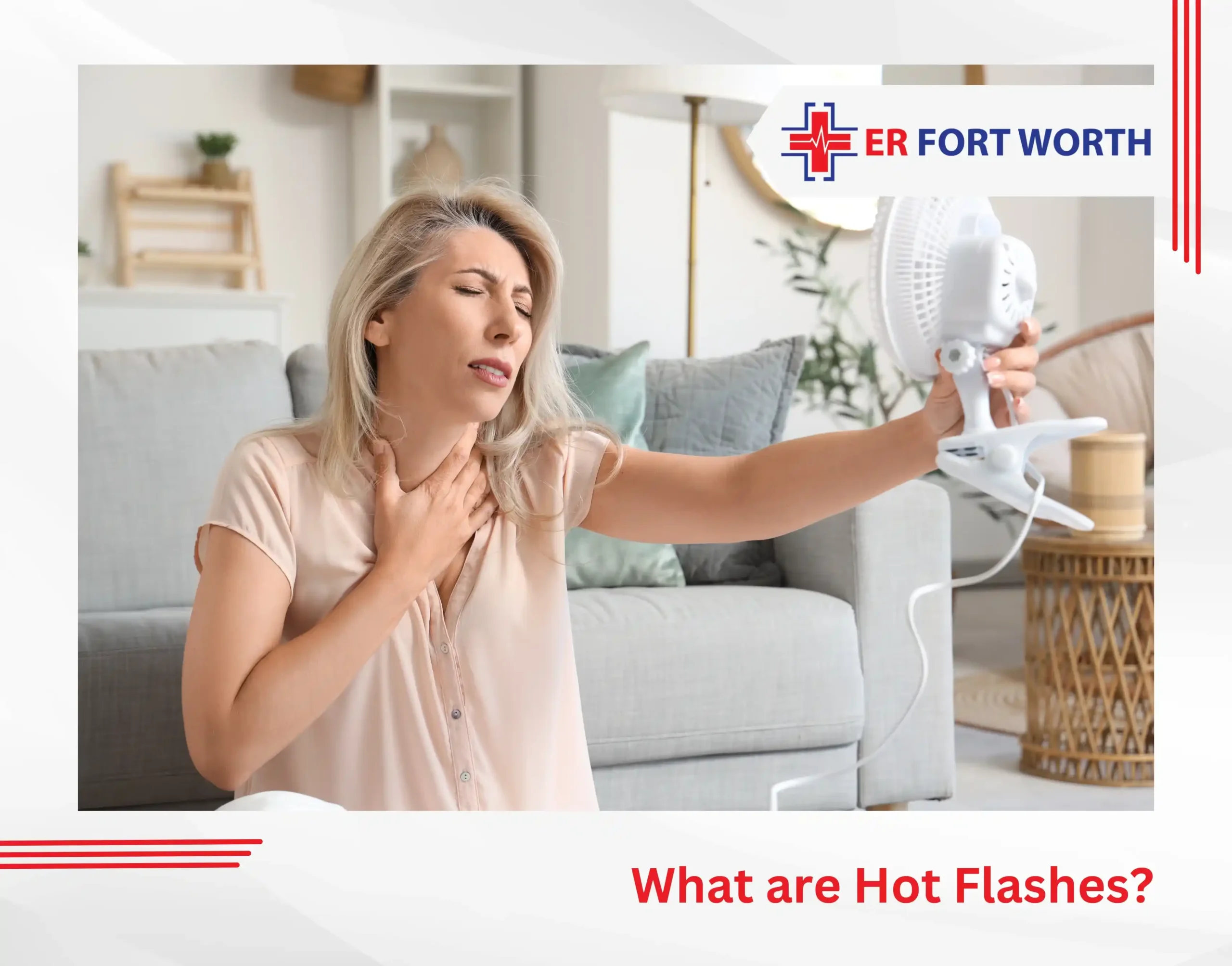
An intense heat wave that spreads through your chest, neck, or face, followed by sweating, flushing, and sometimes a rapid heartbeat is a hot flash. After a few minutes, the heat passes and you may feel a bit chilled.
This happens because of a glitch in your body’s temperature control center, the hypothalamus. When hormone levels, especially estrogen fluctuate, the hypothalamus mistakenly senses overheating.
To fix it, the brain signals your blood vessels to widen (to release heat) and your sweat glands to turn on, which is why you suddenly feel hot and sweaty. Each episode can happen a few times a week or many times a day.
Why Does Nausea Often Come with Hot Flashes?
The hypothalamus thinks your body is getting too hot and it tries to cool you down by releasing adrenaline. Adrenaline makes your heart beat faster and sends more blood to your skin so the heat can escape.
While this helps your body cool off, less blood goes to your stomach for a short time. So digestion slows down and a person feels nauseated.
7 Common Causes of Hot Flashes and Nausea
There are many possible reasons for these symptoms. Let’s explore the main ones:
1. Menopause and Perimenopause
Hot flashes are one of the most common menopause symptoms. During menopause, estrogen and progesterone levels fluctuate, confusing the hypothalamus. This results in sudden heat waves, sweating, and sometimes nausea or a racing heart. Women in perimenopause often notice these symptoms first.
2. Hormonal Imbalances (Not Menopause-Related)
Hormones regulate body temperature, digestion, and mood. If your thyroid is overactive (hyperthyroidism), or your blood sugar drops too low, or your adrenal glands are stressed, you get hot flashes.
3. Pregnancy
In early pregnancy, rise in HCG (human chorionic gonadotropin) and estrogen can cause both morning sickness and hot flashes. It’s common during the first trimester. The symptoms often improve after the body adjusts to hormonal changes.
4. Stress or Anxiety
Emotional stress activates the sympathetic nervous system (“fight or flight” response), releasing adrenaline. Adrenaline heats you up, heart beats faster, stomach gets upset, and nausea hits.
5. Certain Medications
Some drugs have nausea and hot flashes as side effects. Examples include:
- Opioid painkillers
- SSRIs and other antidepressants
- Hormonal treatments (like birth control or hormone therapy)
- Diabetes medications (especially insulin or GLP-1 agonists)
6. Low Blood Sugar (Hypoglycemia)
If you skip meals or go too long without food, your blood sugar drops. When that happens, you get sweaty, shaky, and nauseated. Eating small, balanced meals can prevent these episodes.
7. Infections or Illness
Flu, gastrointestinal infections, or autoimmune disorders can cause fever-like heat sensations and nausea.
8 Simple Ways to Find Relief
The following lifestyle changes help balance hormones, regulate body temperature, and calm the nervous system. With these habits, you can better manage hot flashes and nausea.
1. Stay Cool and Hydrated
- Wear light, breathable fabrics e.g. cotton or bamboo
- Keep a fan or cooling towel nearby
- Drink cold water at the first sign of a flash to reduce body temperature
- Avoid hot showers, saunas, or tight clothing that traps heat
2. Eat Balanced Meals
Big meals can worsen nausea and trigger heat due to digestion workload. Try:
- Smaller portions every 3–4 hours
- Avoid spicy foods, caffeine, and alcohol
- Include complex carbs, lean proteins, and healthy fats to maintain blood sugar levels
If you’re going through menopause, foods rich in phytoestrogens (soy, flaxseed, chickpeas) can help your hormones settle down a bit.
3. Reduce Stress
Stress amplifies both symptoms. Try these simple trick:
- Deep breathing: Slow 4-4-4 breathing: inhale 4 seconds, hold 4, exhale 4. Repeat that whenever you feel a wave coming on.
- Yoga or meditation: Helps regulate hormones and reduce nervous system overactivity.
- Walk outdoors for fresh air and endorphin release.
4. Herbal and Natural Remedies
The following herbs can help too.
- Black cohosh: May help with menopause symptoms.
- Ginger tea: Eases nausea and supports digestion.
- Peppermint: Cools the body and soothes the stomach.
- Vitamin B6: good for pregnancy nausea relief.
5. Improve Your Sleep
Many people experience night sweats, which are basically hot flashes. Restful sleep balances hormones and reduces overall stress on your system. Try these tips:
- Keep your room around 20°C (68°F) or cooler.
- Use breathable cotton or bamboo sheets.
- Avoid caffeine, alcohol, or big meals before bed.
- Try cooling pillows or a light comforter.
- Do slow breathing or a short meditation before lying down.
6. Medical and Professional Treatments
If natural fixes don’t help, there are medical treatments for hormonal imbalance symptoms.
- Hormone Replacement Therapy (HRT): For menopausal women, this helps replace estrogen and balance hormones. But it’s not suitable for everyone because there are certain risks including blood clots and cancers.
- Non-Hormonal Medications: For those who can’t take hormones, these alternatives may reduce hot flashes: SSRIs or SNRIs (e.g., paroxetine, venlafaxine), Gabapentin or clonidine, and antiemetic drugs like ondansetron for nausea control.
7. Treating the Root Cause
If it’s a thyroid imbalance, diabetes, or adrenal dysfunction, treating that root cause often eliminates both hot flashes and nausea.
8. Long-Term Habits That Help
Relief is about steady habits that keep your body balanced. Make these habits a part of your routine:
- Exercise regularly: Exercise improves circulation, hormonal imbalance symptoms, and mood.
- Maintain a healthy weight: Extra body fat can trap heat and worsen hot flashes.
- Quit smoking: Nicotine constricts blood vessels and disrupts temperature control.
- Limit caffeine and alcohol: Both trigger vasodilation (heat release) and worsen nausea.
- Track your symptoms: Keep a small journal noting when flashes occur and what you ate, felt, or did before it. You’ll quickly spot patterns.
Hot Flashes and Nausea in Men
Yes, men can get them too. In men, these symptoms are often linked to andropause (age-related testosterone decline) or hormone therapy for prostate cancer. Other contributing factors include stress, obesity, or certain medications.
Men can follow the same strategies: stay cool, eat regularly, exercise, and check hormone levels if symptoms persist. Testosterone replacement therapy may help in some cases
Quick Rescue Tips During an Episode
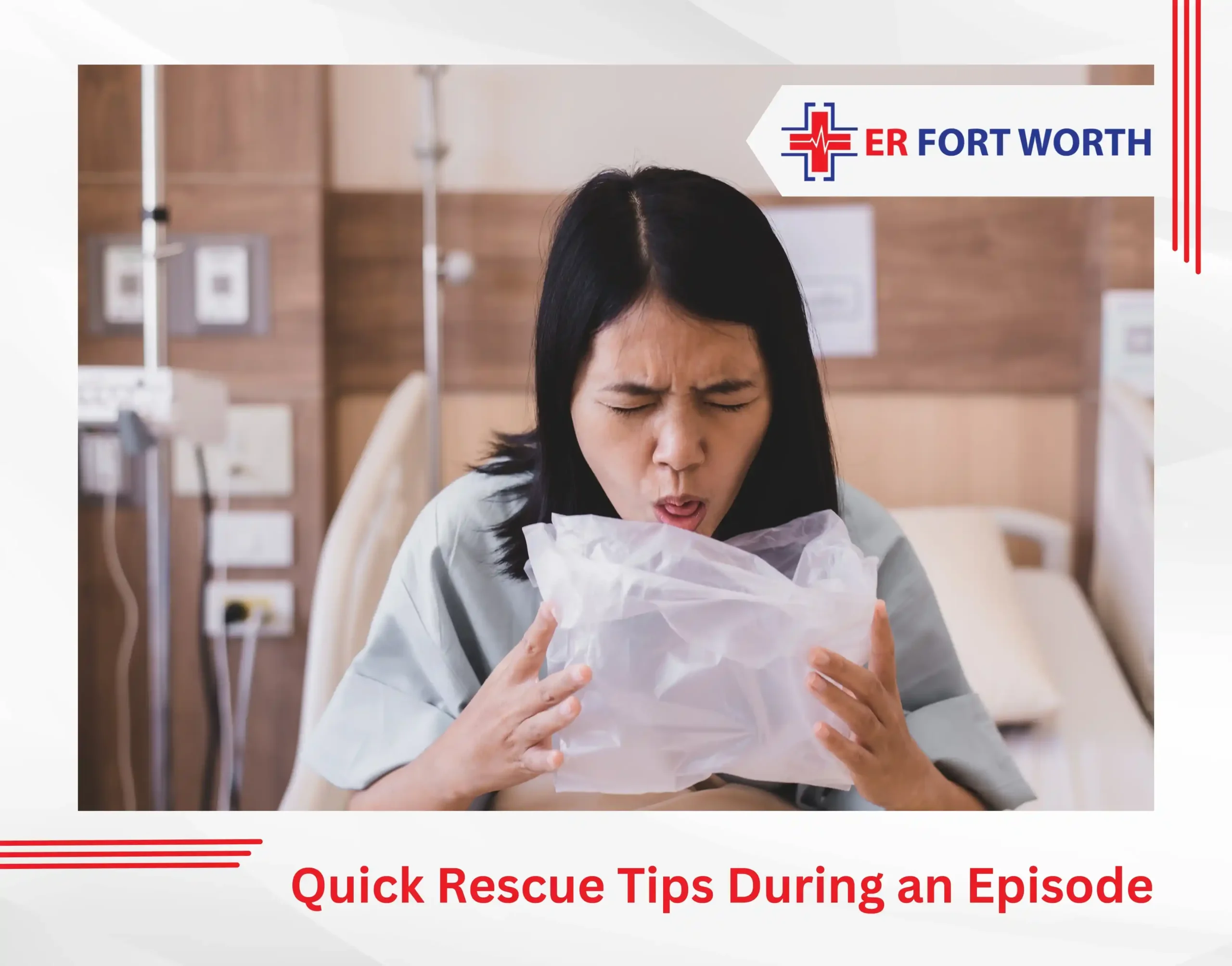
When you feel a hot flash or nausea coming on:
- Stop what you’re doing. Sit down or lean against something stable.
- Take slow, deep breaths through your nose and out your mouth.
- Drink cold water or chew on ice chips.
- Loosen tight clothing around your neck or waist.
- Use a fan or wipe your face with a cold cloth.
- Avoid sudden movement
When to See a Doctor
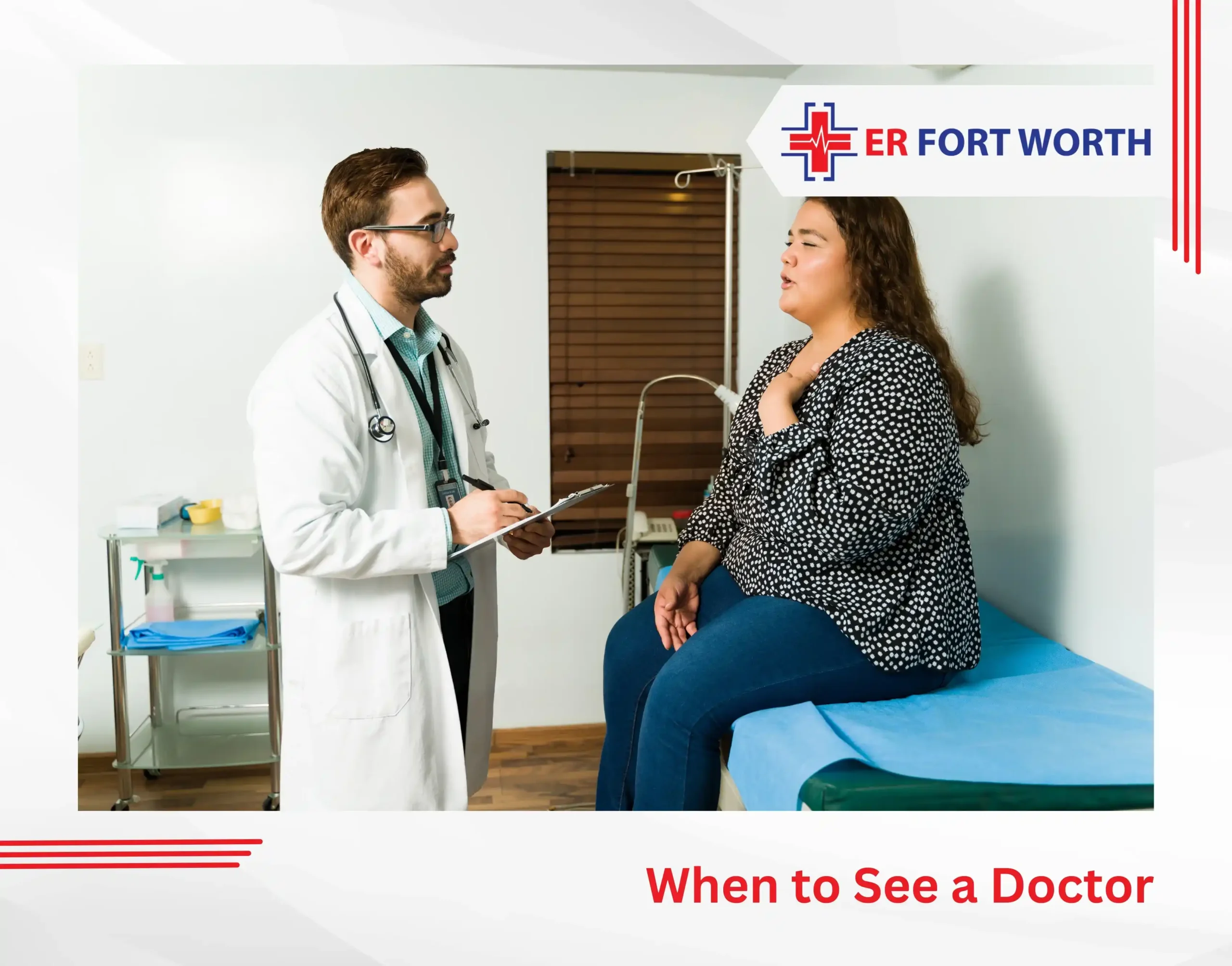
Occasional hot flashes aren’t usually dangerous, but frequent or severe ones shouldn’t be ignored, especially if:
- Frequent or worsening hot flashes without known cause
- Unexplained weight loss or fatigue
- Irregular heartbeat or fainting spells
- Severe vomiting or dehydration
- Hot flashes in men or premenopausal women (to rule out thyroid or pituitary issues)
Final Thoughts
Hot flashes and nausea are usually not signs of something serious. By staying cool, managing stress, eating well, and staying hydrated, most people can reduce these episodes.
If the symptoms become sudden or severe, visit your nearest emergency room.
ER Fort Worth is open 24/7 and can perform onsite blood tests (thyroid function, glucose, hormone levels) or imaging to identify the cause. They provide IV fluids, anti-nausea medication, and a cool, monitored environment to help you feel stable and comfortable again.

